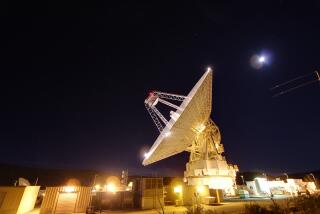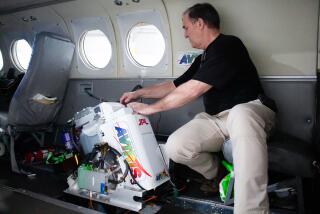NASA gets some funding for Mars 2020 rover in federal spending bill
Congressional negotiators released a $1.1-trillion omnibus spending bill for the 2014 fiscal year that’s more generous to NASA’s scientific endeavors than the White House’s proposal, but it may be too soon to celebrate, officials said this week.
The massive federal spending bill would give NASA’s planetary science division $1.345 billion -- $127 million more than the White House budget request, reflecting a commitment in Congress to space exploration, Rep. Adam Schiff (D-Burbank) said.
“Each year we seem to be going through this drill where the administration savagely cuts planetary science and we have to restore the funding,” said Schiff, whose district includes the Jet Propulsion Laboratory in La Cañada-Flintridge; the lab operates the Mars rovers. “And it’s my hope that we can put an end to that.”
The omnibus spending bill would provide $65 million for the Mars 2020 rover mission, which could potentially collect samples for future missions to bring to Earth; and $80 million for research into a future mission to Jupiter’s icy moon Europa, whose watery interior could be friendly to alien microbial life.
“This is pretty good news,” Planetary Society Chief Executive Bill Nye said in a statement, adding that “$1.345 billion for planetary science is good. Nevertheless, Congress and tens of thousands of Planetary Society members will continue to make the case for $1.5 billion,” he said, referring to the division’s historical average funding level.
But Schiff raised concerns that relatively good news could be only temporary.
“I’m concerned when I hear rumors percolating that they’ll once again try to cut planetary science, they want to decommission ongoing missions or they want to turn off some of the rovers or other spacecraft,” Schiff said. “Once we’ve sunk in the costs into getting these spacecraft to the orbits they’re in, or to the surface of other planets, they become the most cost-effective tools in science. And it would be horribly counterproductive to think of curtailing these programs.”
NASA has been reeling from two years of funding cuts and has scaled back its planetary science efforts in response. Such continued loss of funding can equal a loss of jobs -- and this could mean a major drain of talent and experience down the road, Schiff said.
“There aren’t many people who can enter the Martian atmosphere or who know how to land a spacecraft on the surface. But the people at JPL can, and have done so repeatedly,” Schiff said. “Once you lose that talent, reconstituting it later is extremely difficult. … If we lose those people that know how to land on Mars, it’ll be decades before we’re able to go back.”







